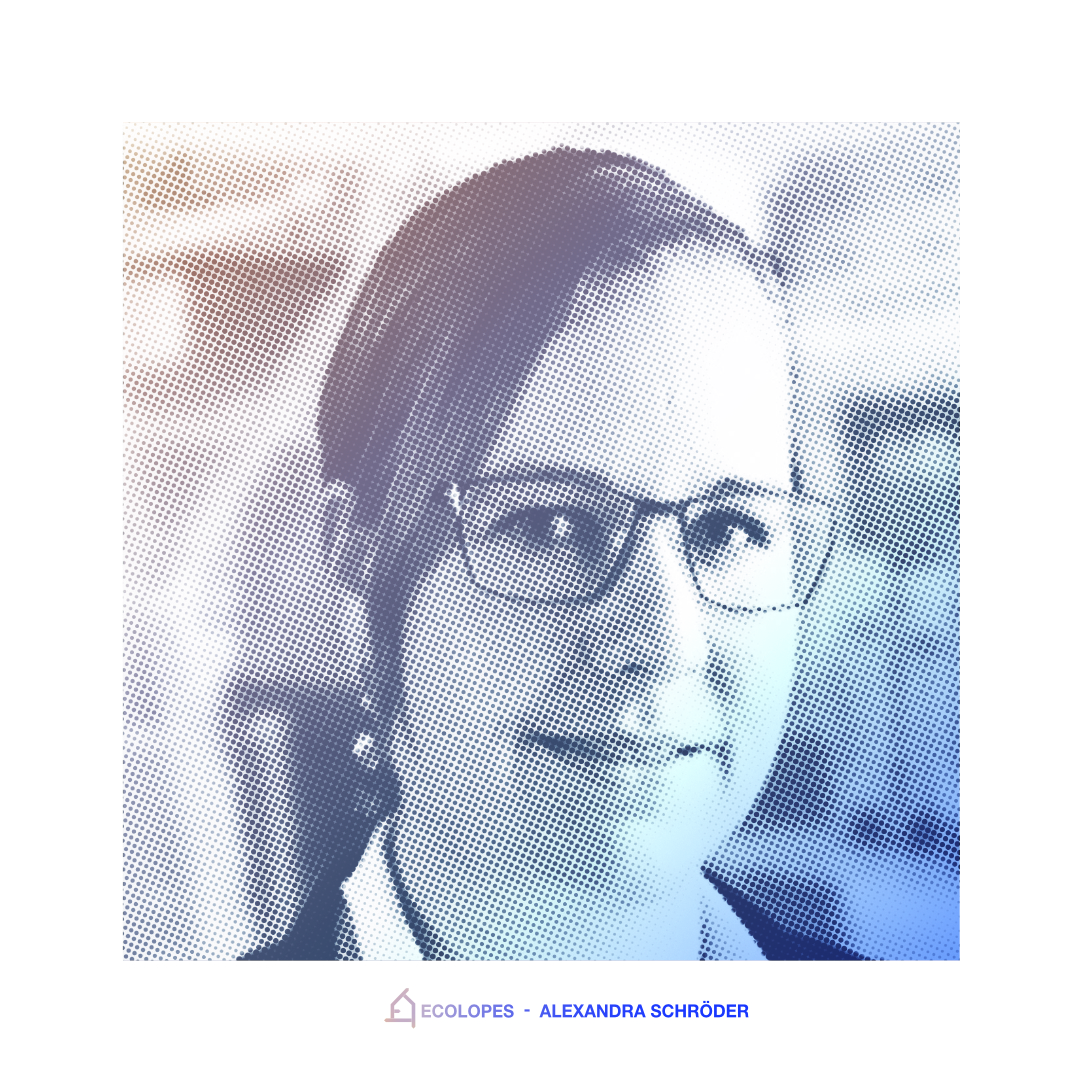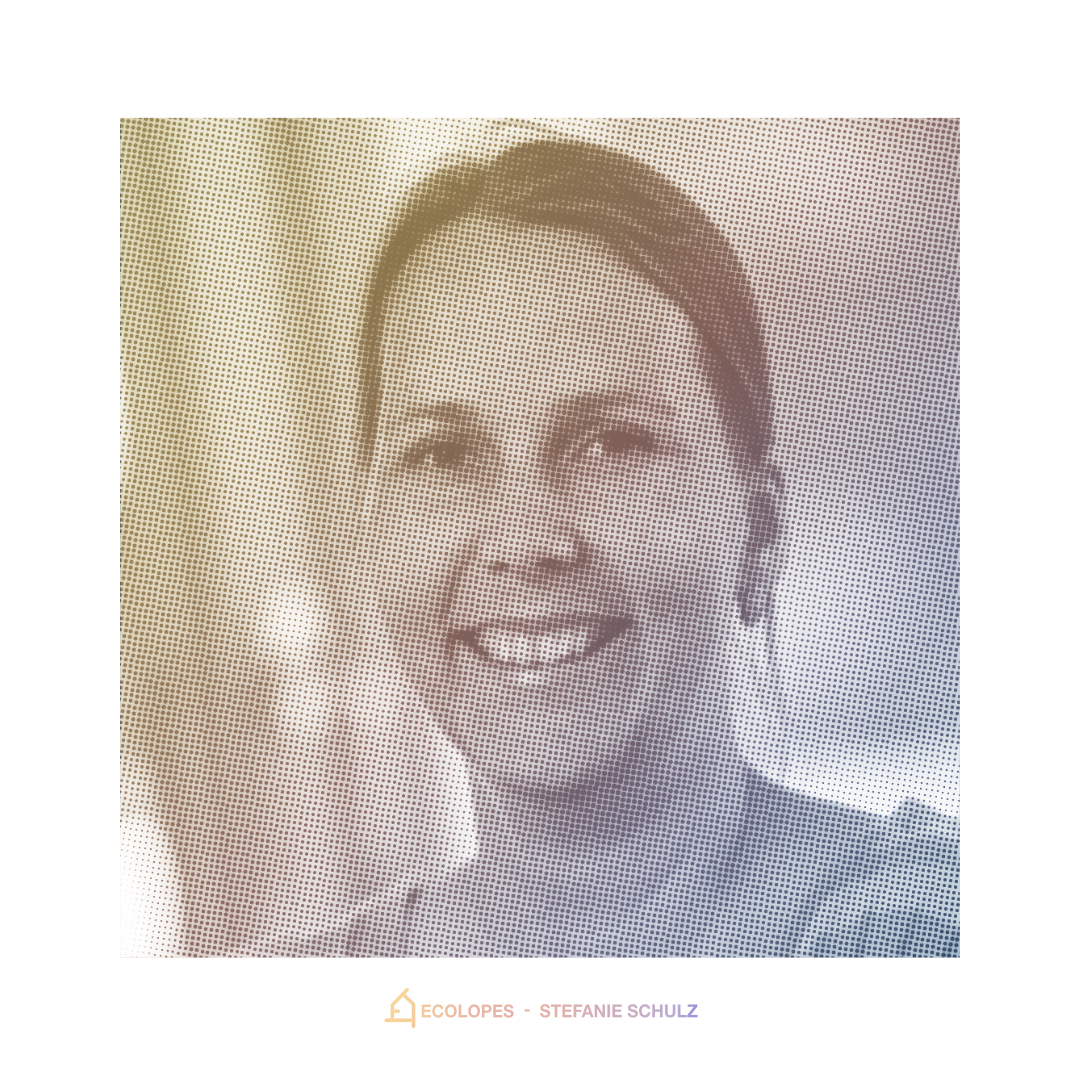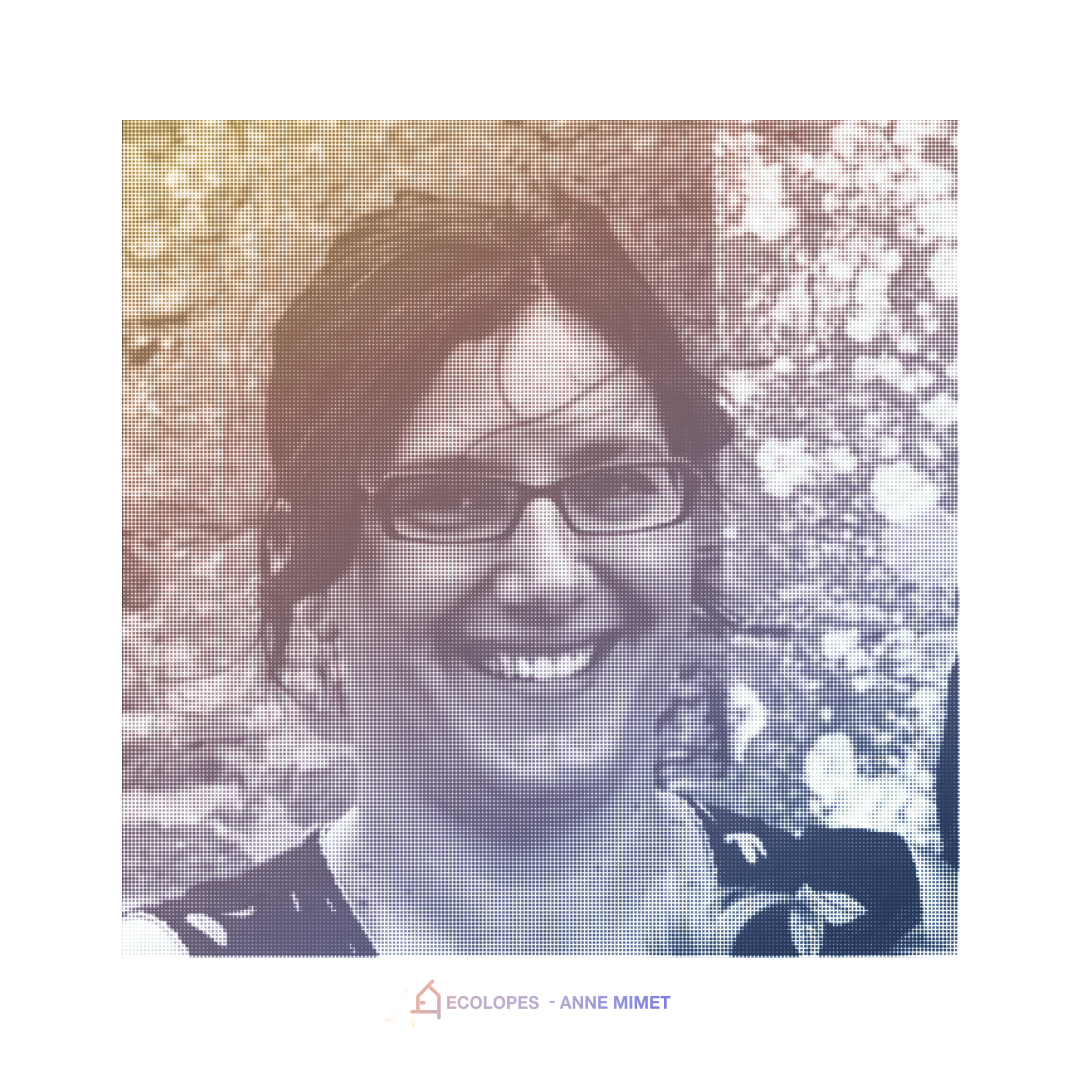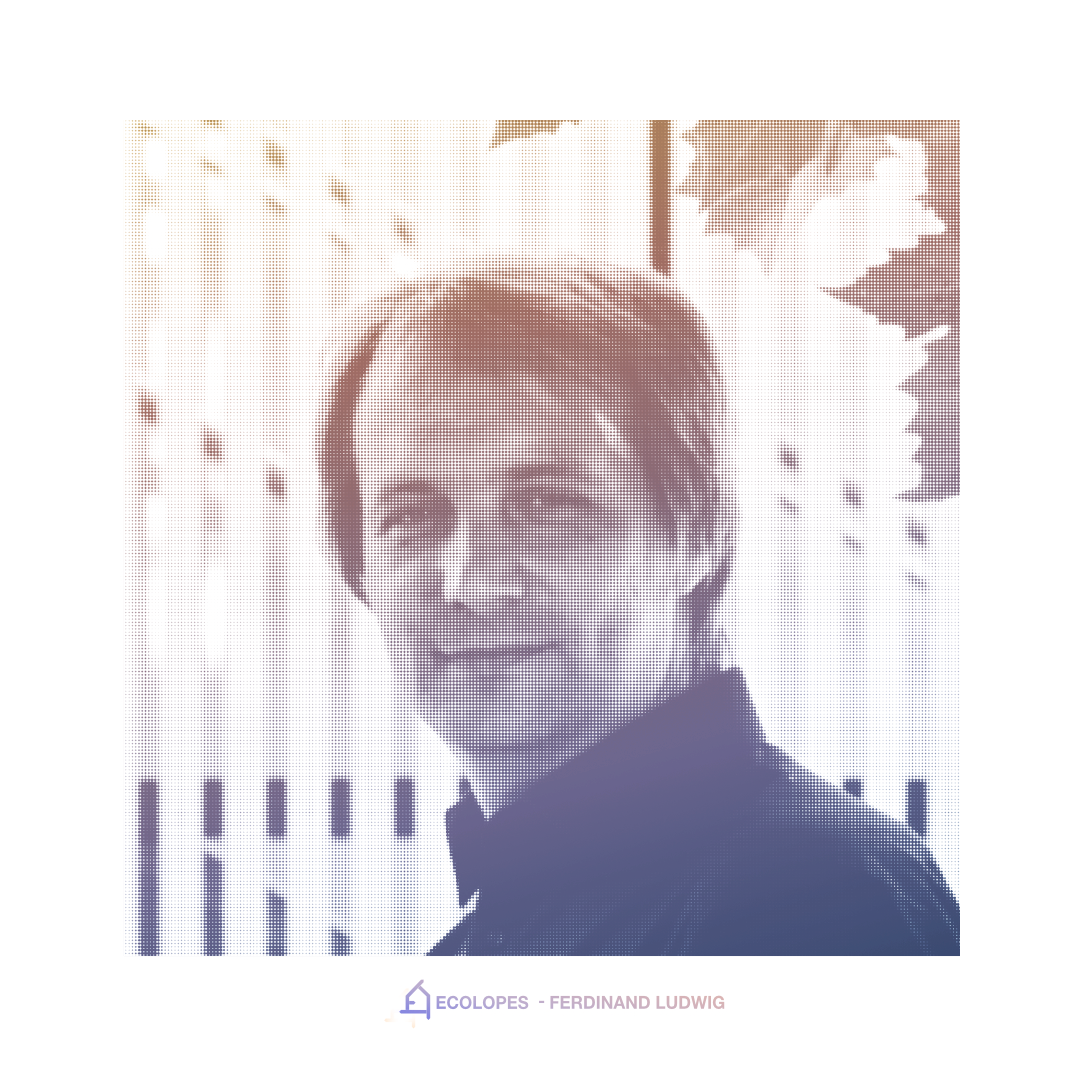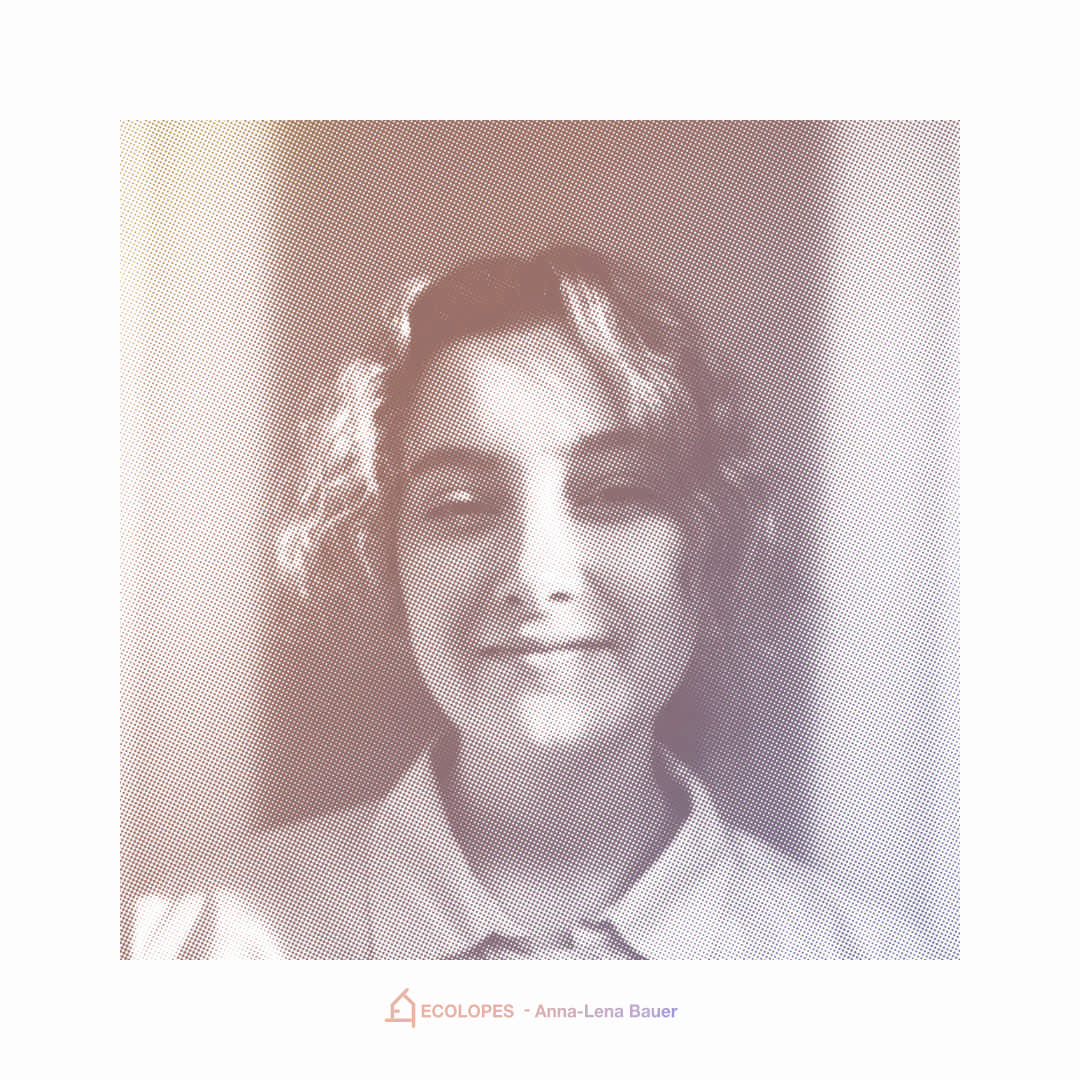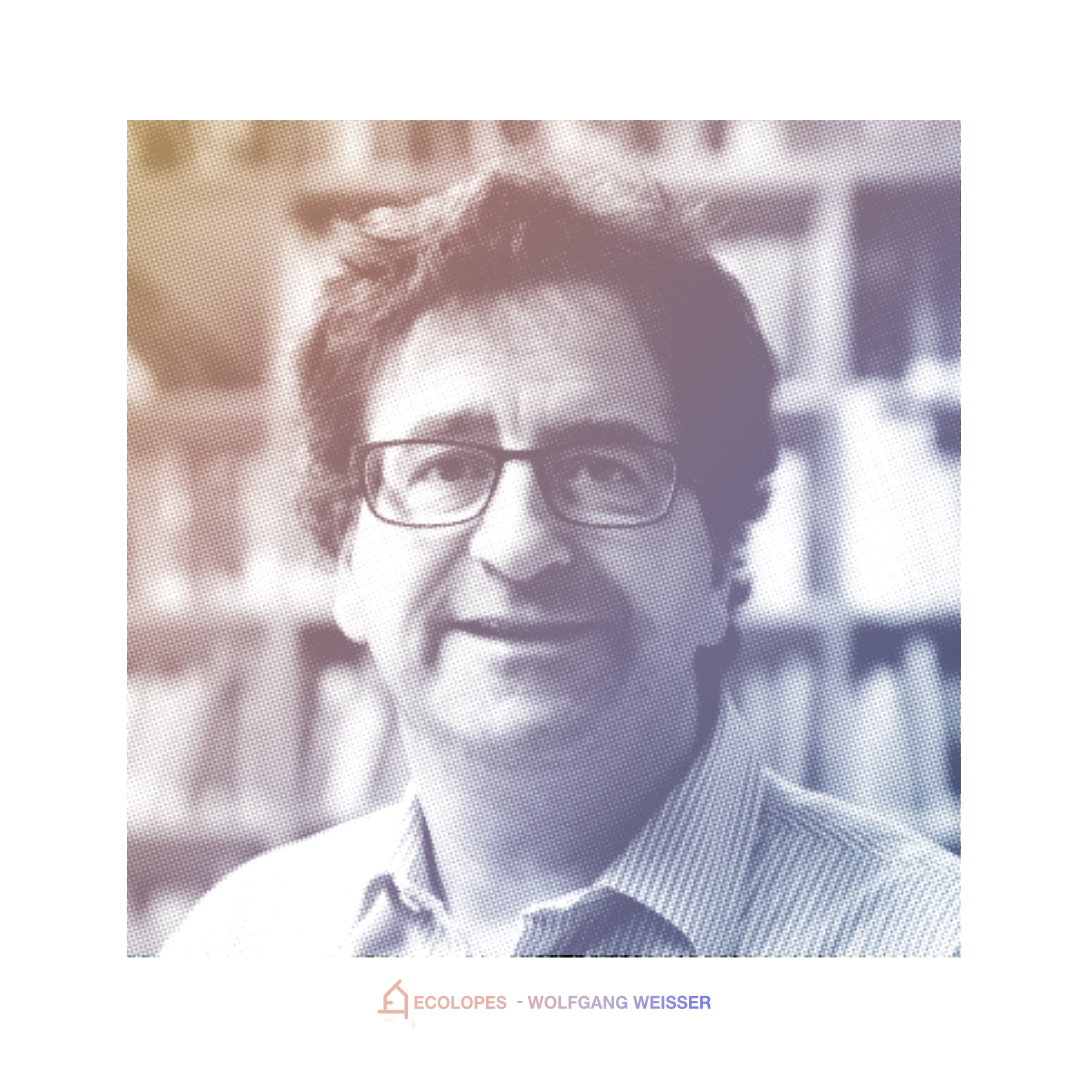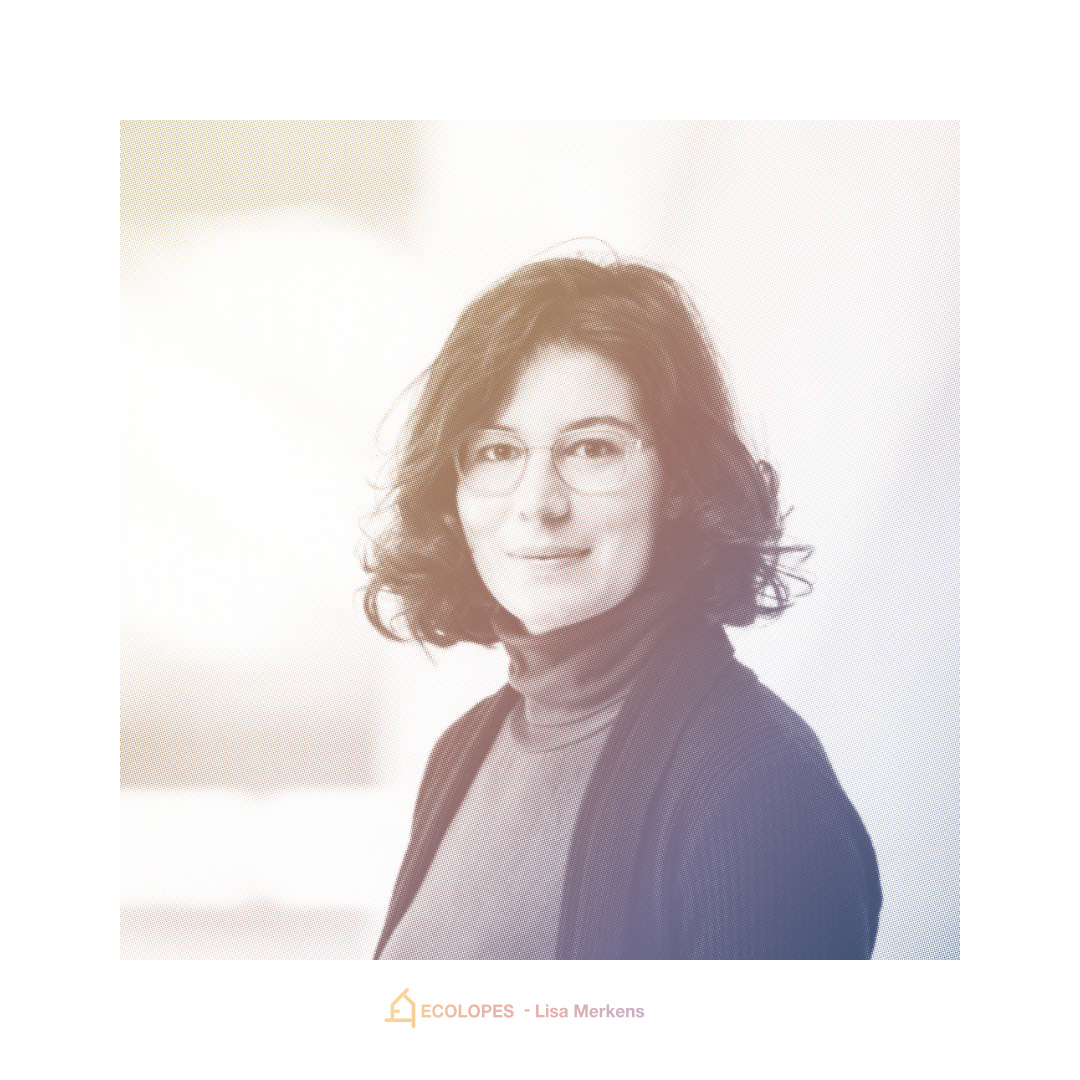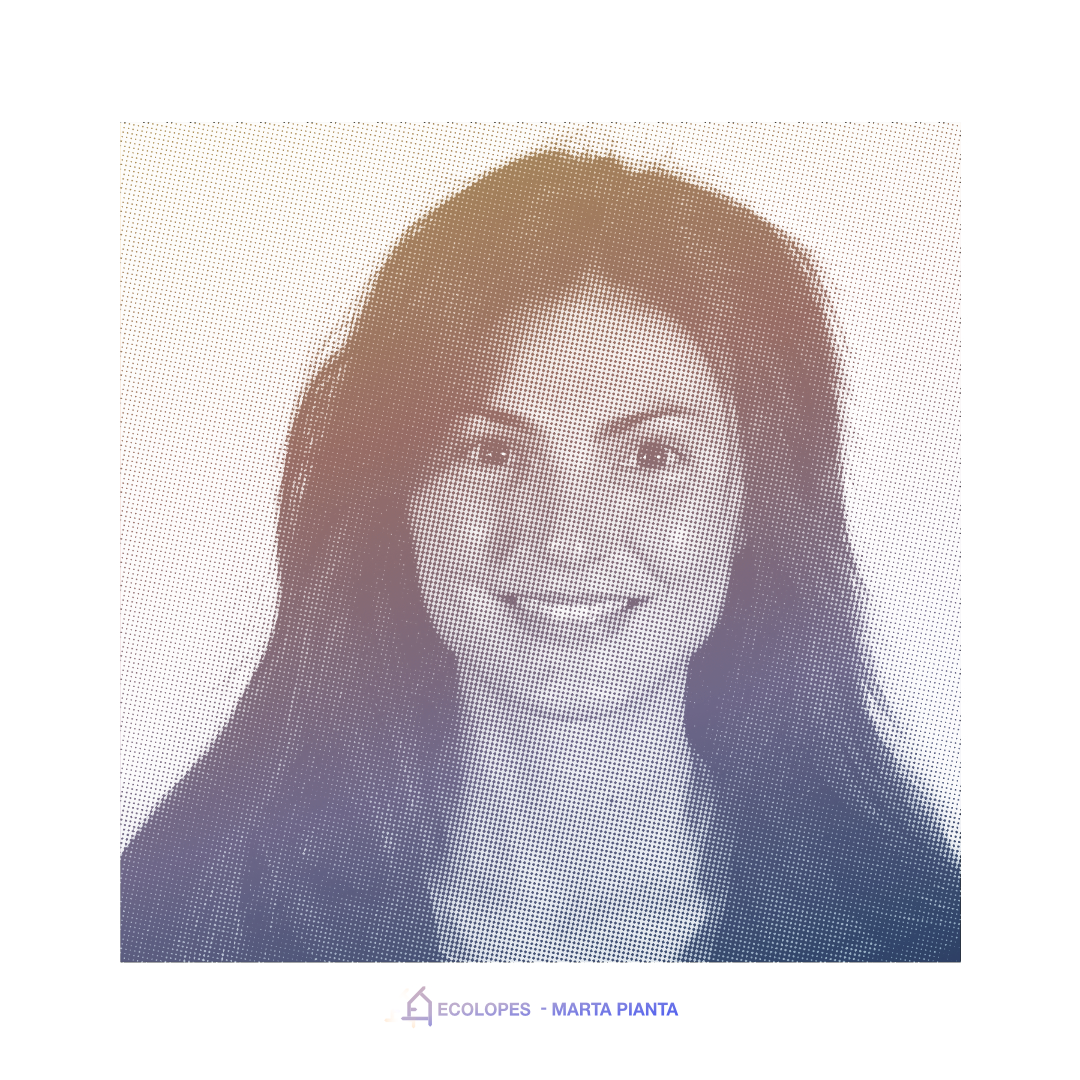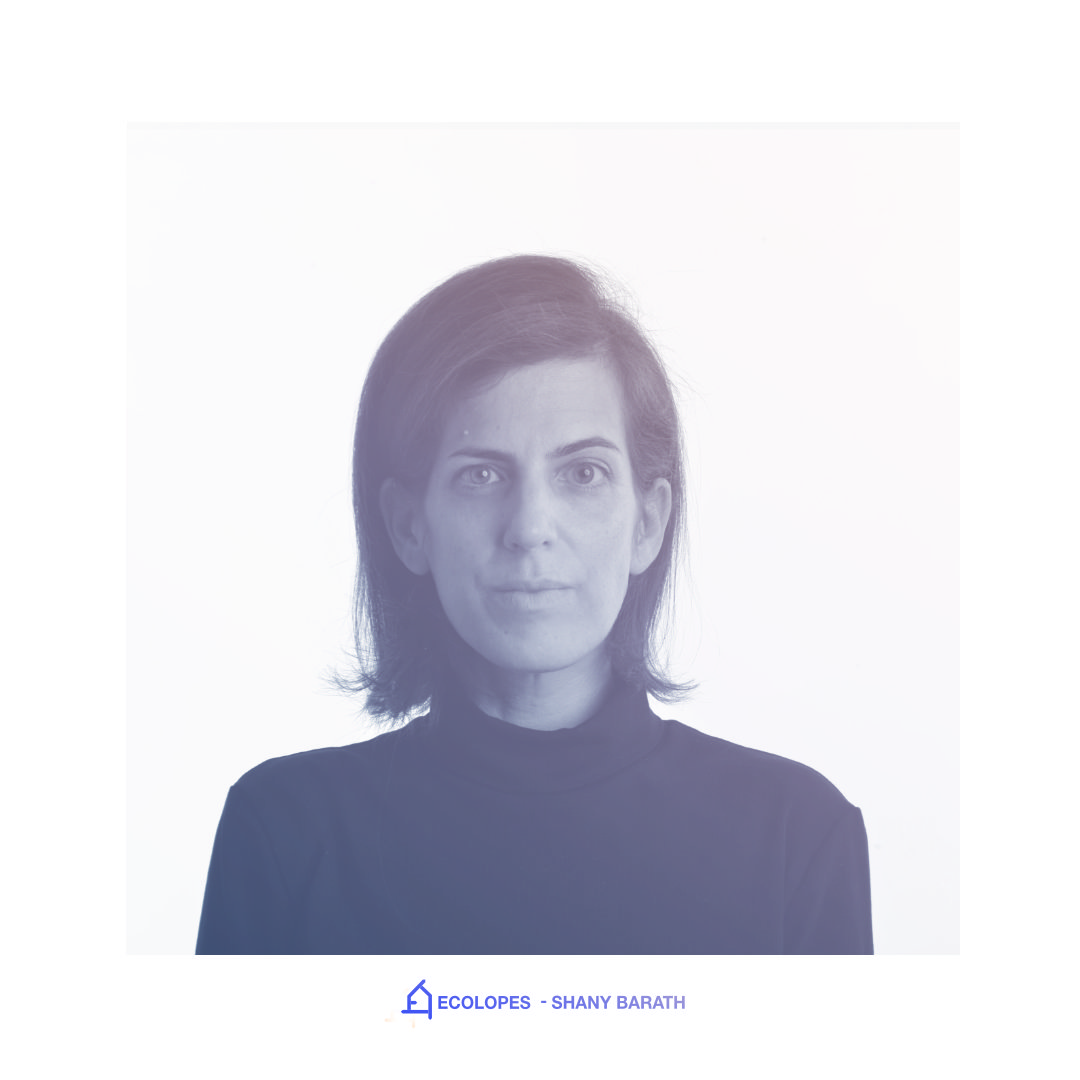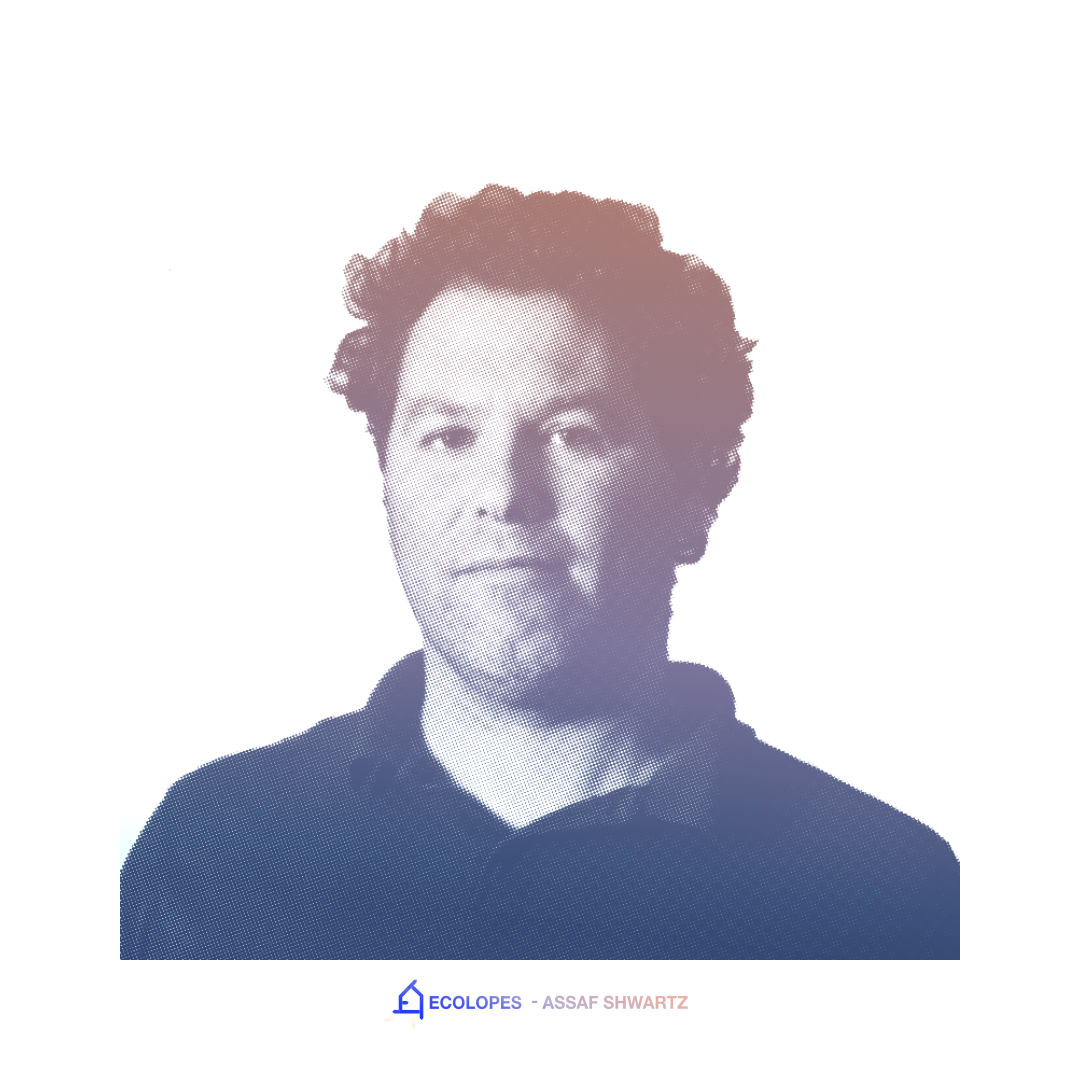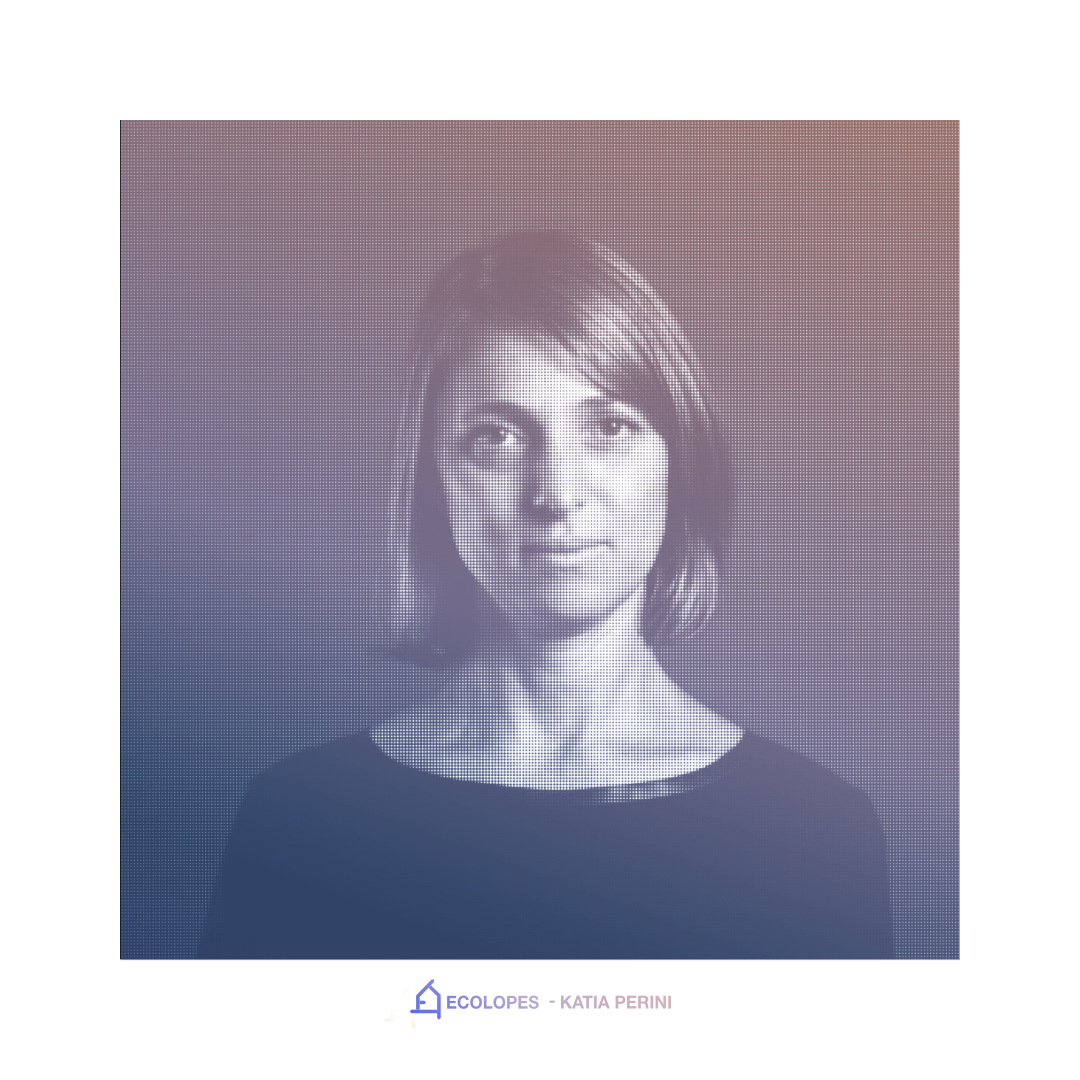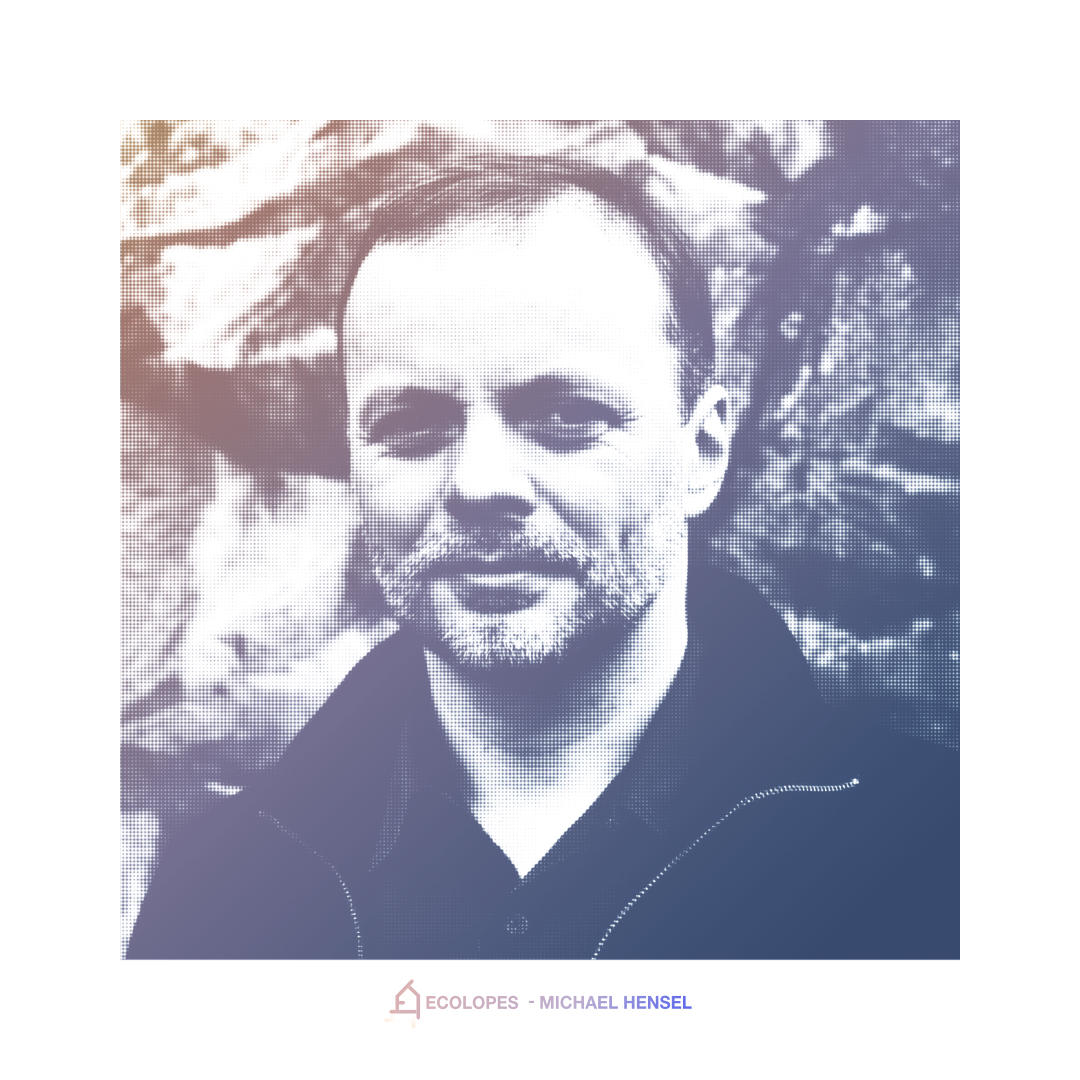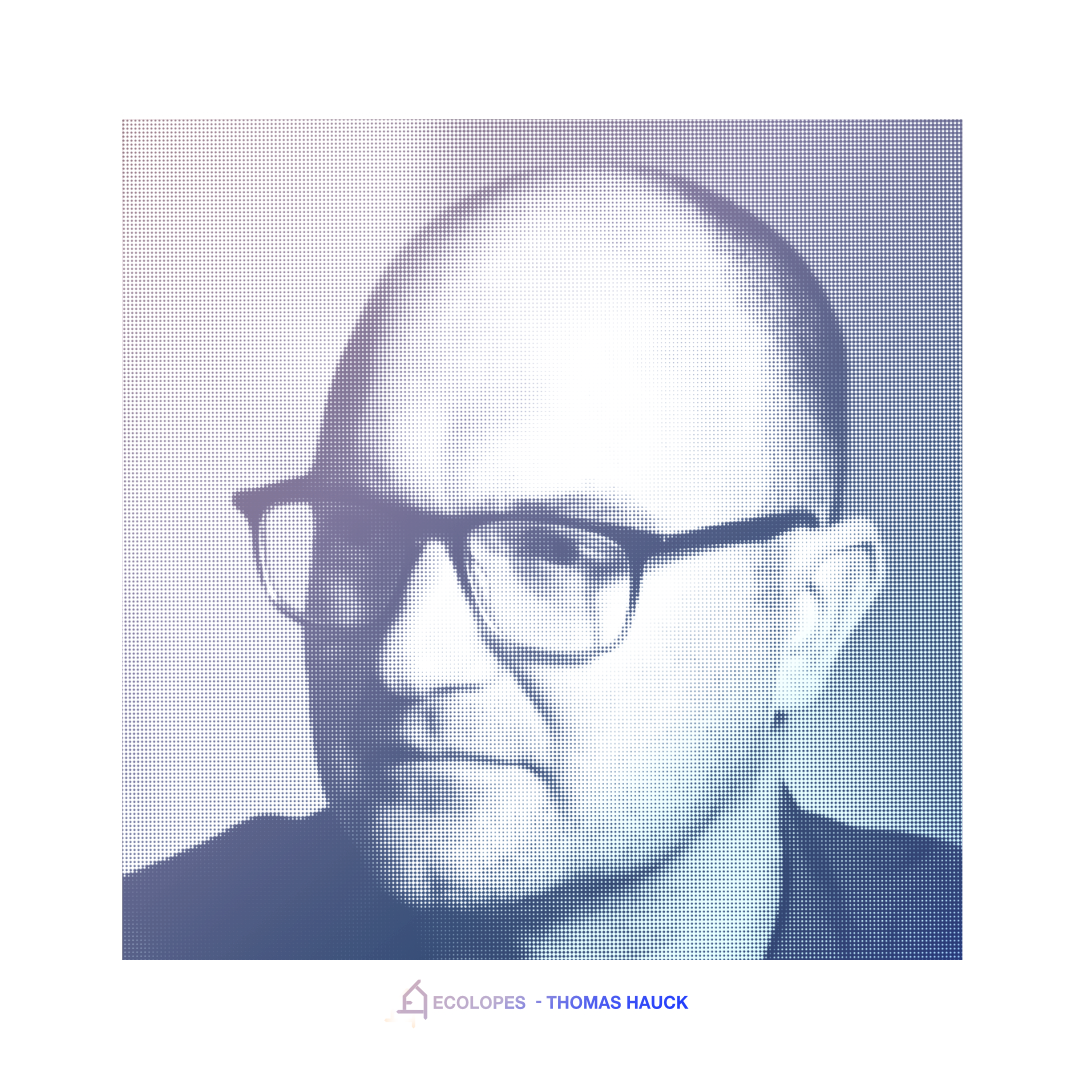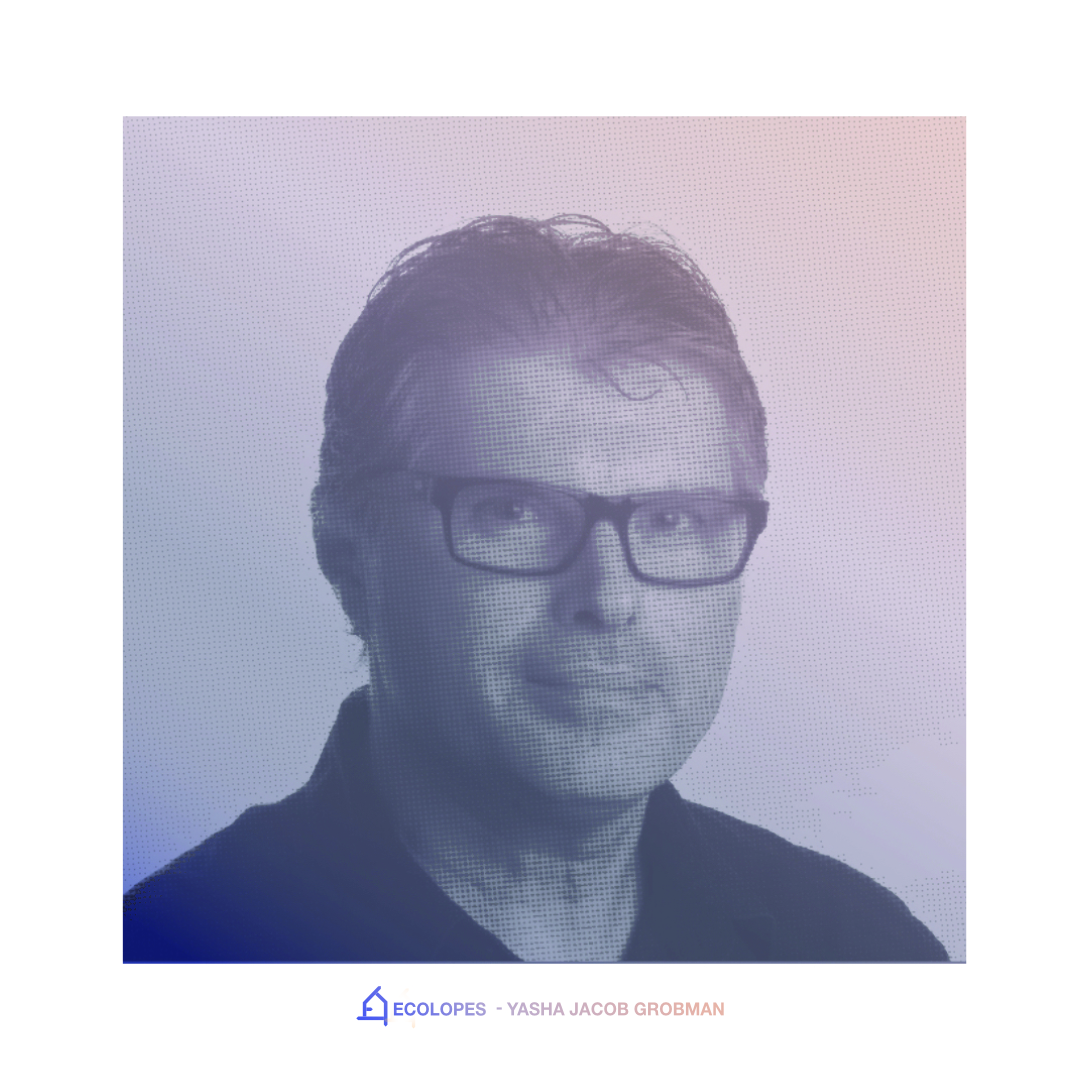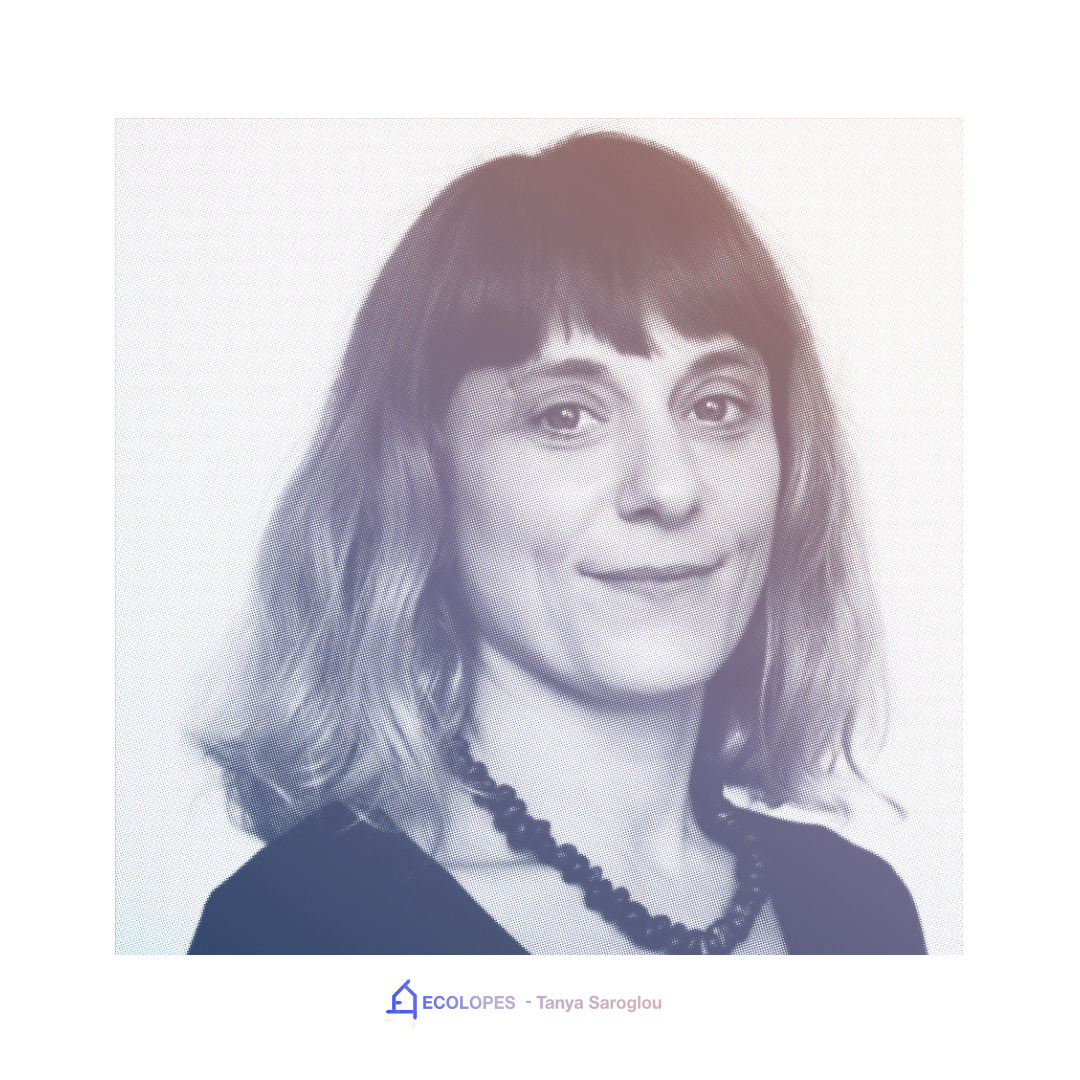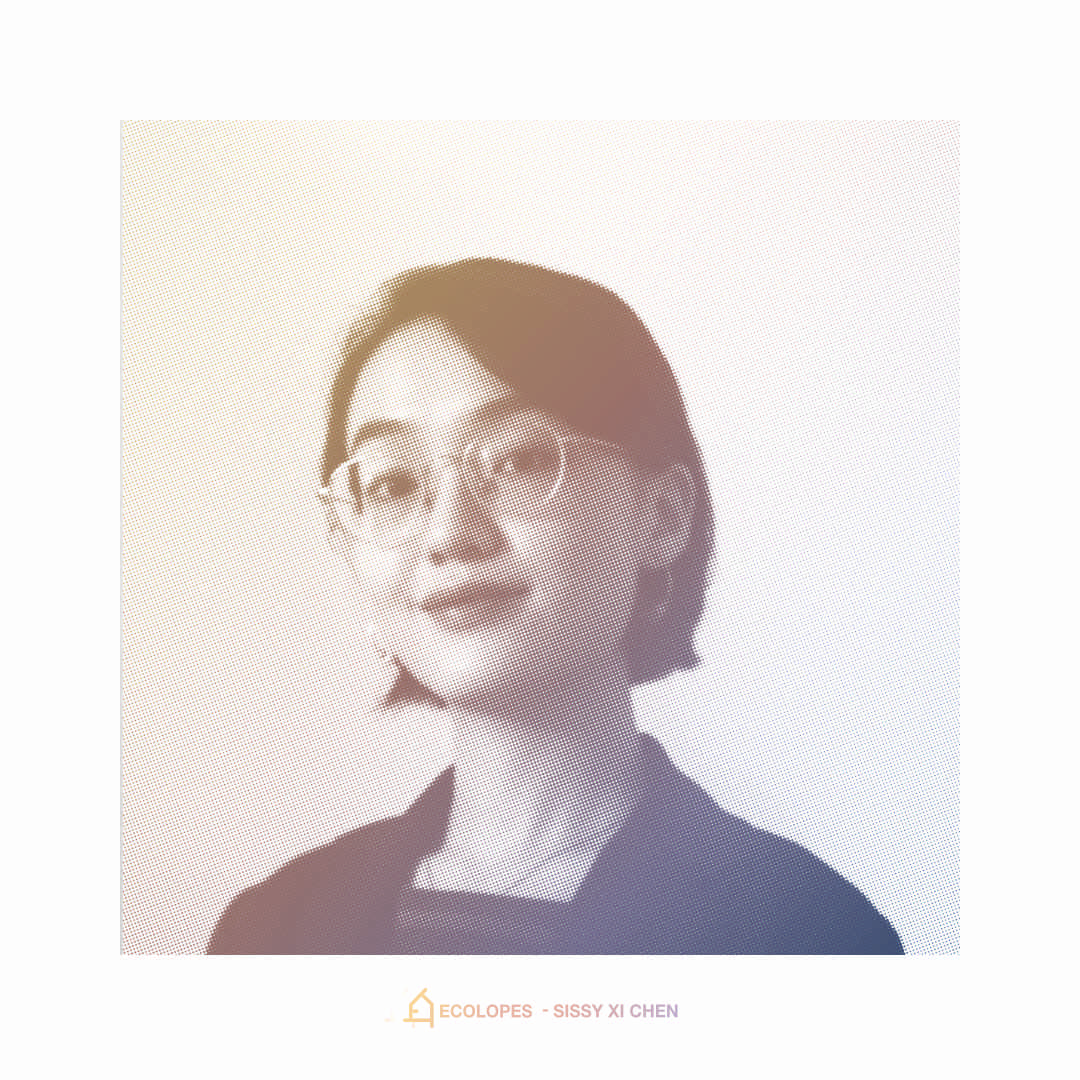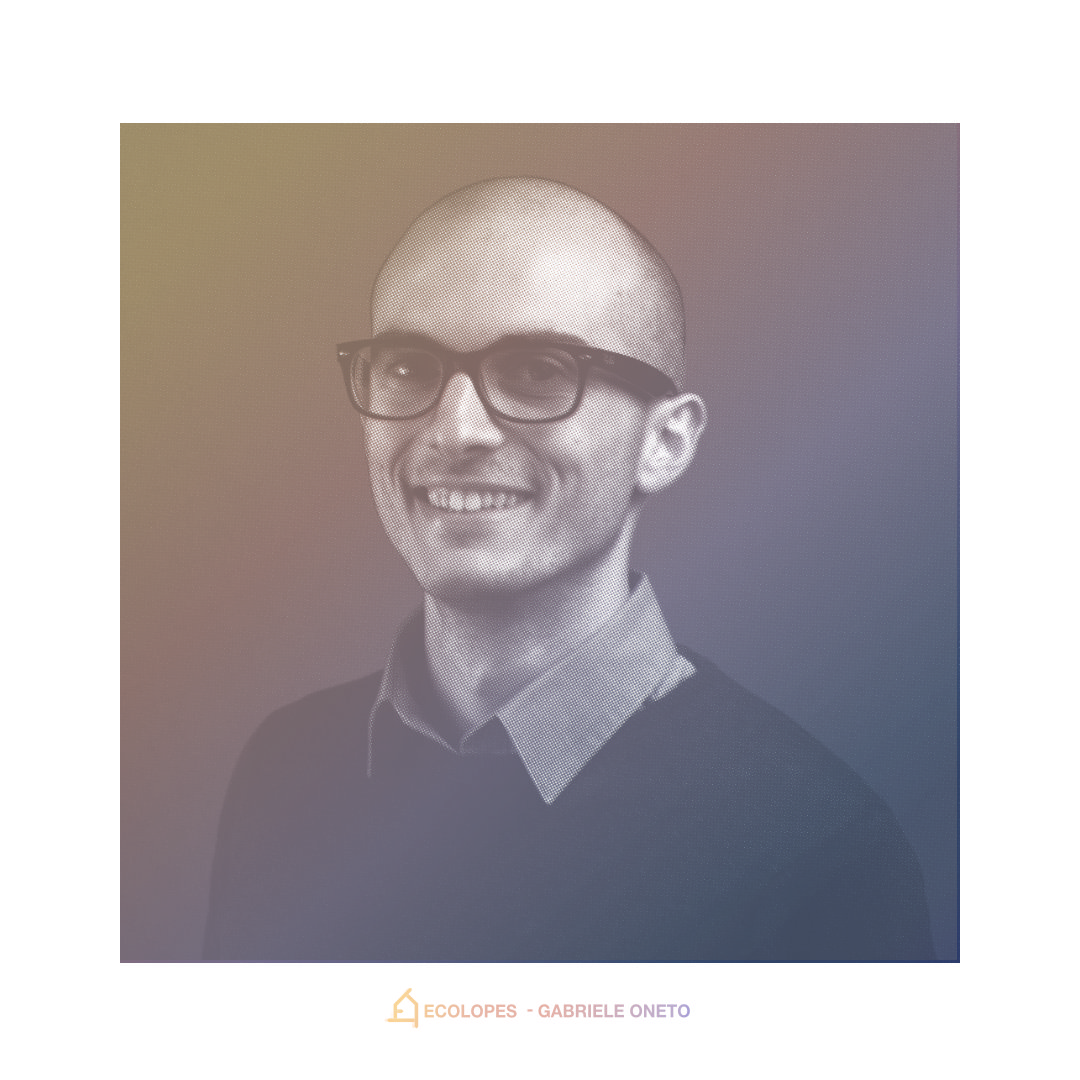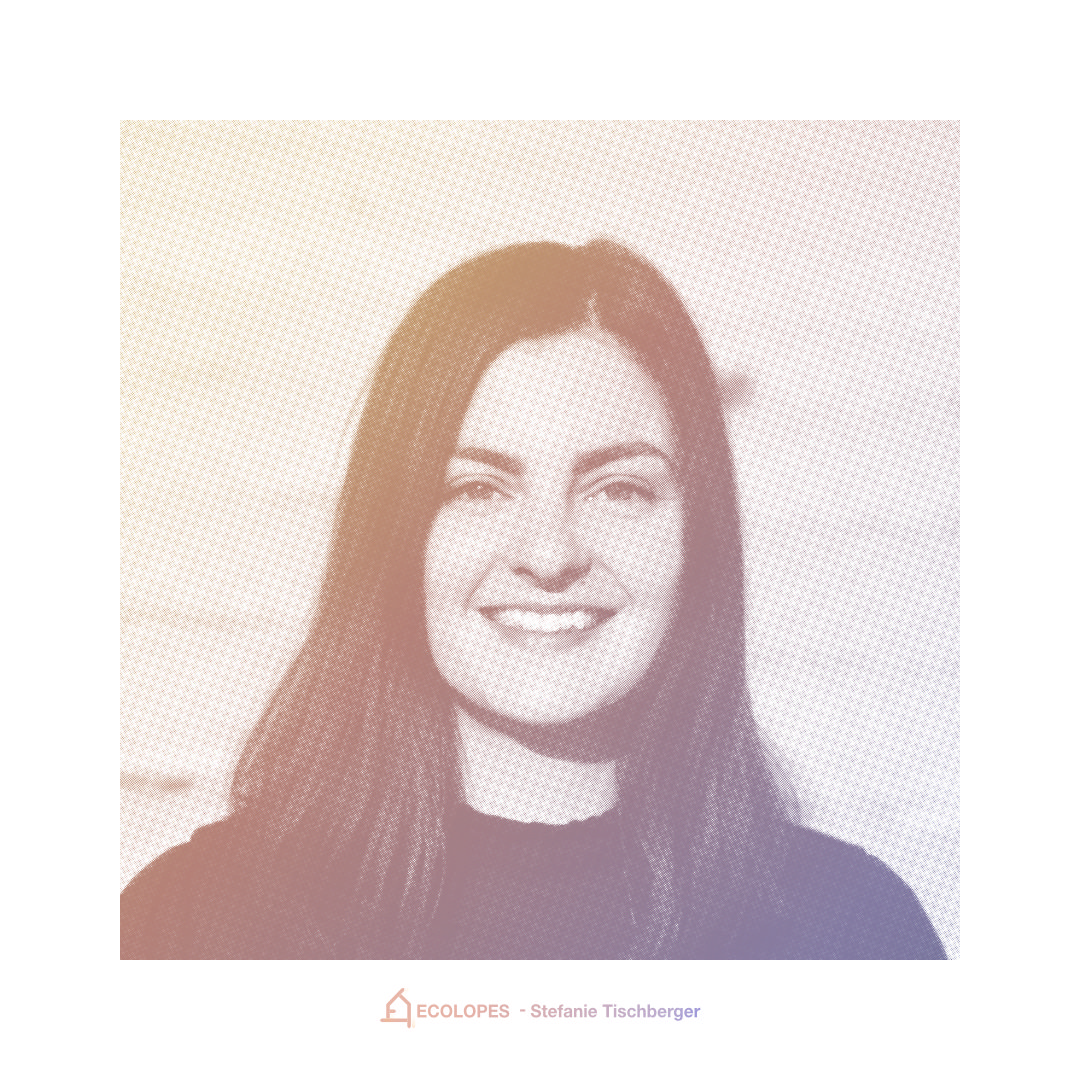MEMBERS
PARTNERS
The project consortium comprises of six partners:
The Technical University of Munich, Vienna University of Technology, University of Genoa,
Technion – Israel Institute of Technology, Studio Animal Aided Design, McNeel Europe
• At the Technical University of Munich two faculties take part in ECOLOPES. The School of Life Sciences based in Weihenstephan, Freising, focuses on research and teaching in many aspects of life sciences, from molecules to plants and animals to ecosystems and landscapes. Within the School, the Department of Life Science Systems brings an ecosystem perspective to ECOLOPES. Within the School of Engineering and Design (in formation) the Department of Architecture focuses on design research to develop strategies for the transformation of our built environment.
• At Vienna University of Technology two faculties take part in Ecolopes. The Faculty of Architecture and Planning combines architecture and planning two fundamental subjects under the umbrella of one faculty and deals with the questions and challenges of the development and design of our environment. The Faculty of Informatics is one of Europe’s leading research, teaching, and innovation institutions in computer science and Austria’s largest faculty of its kind.
• Two Departments of the University of Genoa are taking part in the ECOLOPE project. The research team of the Architecture and Design Department (Polytechnic School) focuses on sustainable design and planning, nature-based solutions and LC-based assessment. The Department for the Earth, Environment and Life Sciences (School of Mathematical, Physical and Natural Sciences) works in the field of botany applied to architecture and environment focussing on the plant dynamics and response to abiotic and biotic stress in urban ecosystems, and nature-based solutions.
• The Technion – Israel Institute of Technology is Israel’s first university and its largest center of applied research. Technion is ranked among the leading technological universities worldwide.The Faculty of Architecture and Town Planning serves as a unique framework for the training of architects, landscape architects, regional and urban planners, industrial designers, as well as researchers in these fields. The faculty research team involved in the ECOLOPES projects will work on data driven design computation, simulation & analysis as well as the human response to the novel building envelopes.
• Studio Animal-Aided Design is a start-up company resulting from research projects on the role of animals for the design of open green spaces. Our aim is to implement the Animal-Aided Design (AAD) method into international planning practice, to promote biodiversity and urban nature within urban development, landscape architecture and architectural projects. The central idea of the Animal-Aided Design (AAD) method is to integrally plan the occurrence of animals as part of the design of open spaces.
• McNeel Europe in Barcelona is the European, Middle Eastern and African headquarters of Robert McNeel & Associates, a privately owned company owned by employees with many years of experience developing and supporting the architecture and design software Rhinoceros® . Rhinoceros provides a rich ecosystem of plugins and an open set of development tools (including free and open SDKs API) for design related software development in ECOLOPES.
ALL MEMBERS
TECHNICAL UNIVERSITY OF MUNICH
• Prof. Dr. Ferdinand Ludwig is Professor for Green Technologies in Landscape Architecture at Technical University of Munich since 2017. At the cutting edge of design, natural sciences and engineering his work centers on architectural concepts in which plants play a central role, thereby broadening architectural knowledge by confronting aspects of growth and decay, probability and chance in architectural and landscape design. He studied architecture and completed his doctorate studies at the University of Stuttgart where he founded the research group “Baubotanik” in 2007. He is partner in the office OLA Office for Living Architecture and has designed numerous projects, such as “Plane-Tree-Cube” in 2012, “Baubotanik Tower” in 2009, and “Baubotanik Footbridge” in 2005. In the ECOLOPES project he focuses on the conceptual integration and the dissemination of the results.
ORCID Google Scholar ResearchGate
• Dr. Anne Mimet is an interdisciplinary postdoctoral researcher in ecology and geography at the Terrestrial Ecology Research Group, Technical University of Munich. Her main research interests focus on how to describe the environment to understand and model the combined impacts of land use, landscape, and climate changes on biodiversity, and connectivity in anthropogenic landscapes oriented toward landscape planning. In ECOLOPES, she is in charge of the animal component and its interactions with the other biotic and abiotic components.
ORCID Google Scholar ResearchGate
• Dr. Defne Sunguroglu Hensel is post-doctoral researcher at the department for Green Technologies in Landscape Architecture at Technical University of Munich . She is an architect and partner in the practice OCEAN Architecture|Environment, and coordinating manager of LamoLab Research Center. Her work focuses on green construction, data-driven design and knowledge-based decision support. In ECOLOPES, she leads work-package 4, focused on the EIM Ontology to bring ecological intelligence into data-driven computational design.
ORCID Google Scholar ResearchGate
• Prof. Dr. Wolfgang Weisser is head of thein the Department of Life Science Systems at the Technical University of Munich (TUM, Germany). He is a biologist interested in developing sustainable land use options. His group investigated the effect of land use on biodiversity, in particular how human land use changes species interactions. Most of the research focuses on insects, but also on other animals. Together with Thomas Hauck he developed the method Animal-Aided Design to integrate animals into landscape architectural designs. He coordinates ECOLOPES and is closely involved in modeling animal populations living on the ecolope.
• Dr. Victoria Culshaw is a postdoctoral researcher at the Terrestrial Ecology Research Group . Having earned a Ph.D. at Real Jardín Botánico at the biodiversity and conservation department, her main research interest is the modelling of topics related to biodiversity, ecology and ecosystem management.
• Laura Windorfer completed her master’s in Evolution, Ecology and Systematics at the Ludwig-Maximilians-Universität in Munich (LMU) with a background in computational evolutionary biology. She is a Ph.D. student in the PROTOHAB project at the chair for Terrestrial Ecology at the TUM and the Faculty of Architecture and Town Planning at the TECHNION. She will work on understanding how the block and facade geometry influences the abiotic and biotic conditions on the blocks and facades.
• Lisa Merkens has a Master’s degree in Geoecology and is currently a PhD student at the Terrestrial Ecology Research Group. Her research focuses on modelling the influence of an abiotic environment on organisms and their interactions. For ECOLOPES, she will explore how the city structure impacts the colonization of different animal groups on urban sites.
• Prof. Dr. Michael Schloter heading the Institute for Comparative Microbiome Analysis at the Helmholtz Center for Environmental Health in Munich and Professor for Microbiology at the Technical University of Munich. His main interests are interactions of environmental and human microbiomes and how shifts in the microbial diversity in nature affect human health. In the ECOLOPES project he focuses on the assessment of microbiota in the different design settings, which are in the focus of the project.
ORCID Google Scholar ResearchGate
• Dr. Stefanie Schulz is a researcher in the field of microbiology with a special focus on the soil environment and deputy head of the research unit and working group “Environmental Microbiomes”. As Alexandra Schröder’s supervisor, she contributes her knowledge on the study of microbially driven soil formation and nutrient turnover in different habitats. Together with Michael Schloter, she teaches at TUM.
• Alexandra Schröder completed her master in biology at the Technical University Munich and is currently a PhD student at the Institute for Comperative Microbiome Analysis at the Helmholtz Center for Environmental Health in Munich. As stakeholder for the microbiological role in urban systems, her main research interest is to identify specific functional groups for nutrient turnover in soil/substrate. With this knowledge, microbes can be targeted as positive supporters in urban ecosystems to create good brown infrastructure for sustainable and resilient cities. Therefore, her task in work package 4 in the project is to provide data and knowledge to validate the designed model from her cooperation partners.
ORCID Google Scholar ResearchGate
• Sissy Xi Chen is a research assistant for Green Technologies in Landscape Architecture at Technical University of Munich and is currently finishing her master thesis concerning a voxel-based performance-oriented design approach for tree canopy in an urban context. Her main research interests are the voxel-based generative algorithms and performance-based design approach for urban greenery. During her studies in Landscape Architecture at TUM, she participated in the project of “Baubotanik Arbor Kitchen” and was the main contributor to the parametric design aspect.
VIENNA UNIVERSITY OF TECHNOLOGY
• Univ. Prof. Dr. Michael U. Hensel is a practicing architect, head of the research department Digital Architecture and Planning and board member of the Center for Geometry and Computation (GCD) at Vienna University of Technology. He is a partner in the practices OCEAN Architecture | Environment and OCEAN net, and steering group member of the LamoLab Research Centre. In the ECOLOPES research project he leads work-package 5 with focus on the ECOLOPES Voxel Model & Computational Model.
ORCID Google Scholar ResearchGate
• Tina Selami has a Master of Science degree in Architecture from Vienna University of Technology (TU Vienna) and is currently a doctoral candidate and project assistant at the Department for Digital Architecture and Planning. Her main research interests are sustainable and climate resilient architecture and design, and environmental simulations and optimizations in architecture and urban planning. In her master thesis she developed the “Urban Green School” concept for a secondary school which combines greening measures of building and open space with environmental education. In addition to her work at TU Vienna she is part of the GREENPASS® project team as a simulation engineer. In the ECOLOPES project she works on the development of the computational model in work-package 5.
• Jakub Tyc is an architect, university assistant and doctoral candidate at the Department for Digital Architecture and Planning at Vienna University of Technology. He practiced in Austria and Germany, where he earned the architect license. His research focuses on the relations between architecture and photogrammetry in the context of data-driven design, investigating data-driven processes to evaluate relations between buildings, their surroundings and the environment. Building on his research on Composite Voxel Models, Jakub is working in work-package 5 on voxel-based interdisciplinary data integration.
• Prof. Dr. Michael Wimmer is currently Associate Professor at the Institute of Visual Computing and Human-Centered Technology at the Faculty of Informatics at Vienna University of Technology, where he heads the Rendering and Modelling Group. He also heads the Center for Computational Design and Geometry. His research interests are real-time rendering, computer games, real-time visualization of urban environments, point-based rendering, reconstruction of urban models, procedural modelling and shape modelling.
ORCID Google Scholar ResearchGate
• Dr. Albin Ahmeti is a postdoctoral researcher at the Department for Digital Architecture and Planning at TU Wien. He has a PhD in Computer Science from TU Wien with focus on Semantic Web, and a MSc in Computer Engineering from Sapienza Università di Roma with focus on Data Integration. He has a mixed academic and industry background – he has worked for more than 5 years in industry as a Data & Knowledge Engineer, helping and consulting customers implement Knowledge Graphs in various domains. With his experience, he contributes to Ecolopes project in establishing a Knowledge Graph as a decision support system.
ORCID Google Scholar ResearchGate
• Stefanie Tischberger is an architect, university assistant and doctoral candidate at the Department for Digital Architecture and Planning at Vienna University of Technology. Her research interests include environmentally conscious spatial planning and building design, with an emphasis on stakeholder engagement and interdisciplinary collaboration. Her focus is on data-informed design and using data to develop and support individual decision-making processes. As part of the ECOLOPES project, she developed a weather-sensitive design for a kindergarten in Vienna using GIS analysis tools.
• Navid Javan Shojamofrad is currently working as a student assistant at the Technical University of Vienna and is contributing to the production and implementation of digital design solutions of ECOLOPES
UNIVERSITY OF GENOA
• Dr. Maria Canepa is assistant professor and Postdoctoral Researcher Fellow at the Architecture and Design Department, University of Genoa (Italy). Main research interests: sustainable design and on Near Zero Energy Building, Building Information Modelling, strategies to address Climate Change and environmental assessed design. In the ECOLOPES project she helps leading work-package 7.
ORCID Google Scholar ResearchGate
• Francesca Mosca has a master in architecture from the University of Genoa (Italy) and is currently a PhD student at the Department of Architecture and Design, University of Genoa (Italy). Her main research interests are integration of vegetation in architecture, strategies for adaptation and mitigation to climate change, and nature-based solutions and related effects on the improvement of environmental conditions and human comfort. In the ECOLOPES project, she will focus on the effect of the ecolope on human well-being assessing thermal comfort and on the building blocks analysis.
• Prof. Dr. Katia Perini is associate professor at the Architecture and Design Department, University of Genoa (Italy). Main research interests: effects and performances of Nature-based Solutions in the field of environmental and economic sustainability in (of) urban areas and building/urban design. In the ECOPOLES project she leads work-package 7 which will demonstrate the effectiveness of the ECOLOPES multispecies design and of the ECOLOPES design platform.
ORCID Google Scholar ResearchGate
• Dr. Mariasole Calbi is a post-doctoral researcher at the Department of Earth, Environment and Life Sciences, @unigenova (Italy). Her main research interests are the patterns and drivers of plant communities’ composition and structure and the response of vegetation to human disturbance.In ECOLOPES she mostly works on the vegetation component of the model, defining plant functional groups and simulating their dynamics.
• Marta Pianta is currently a PhD student at the Department of the Earth, Environment and Life Sciences, University of Genoa (Italy). Her main research interests are interactions of plants in the urban green spaces and the resulting ecosystem services, which represent a strategy to improve environmental quality in cities. In the ECOLOPES project, she will focus on the plant/vegetation component of building envelopes running simulations, and on testing in pilot site in Genoa.
• Prof. Dr. Enrica Roccotiello is assistant professor at the Department of Earth, Environment and Life Sciences, University of Genoa (Italy). Her main research interests are plant response to abiotic and biotic stress in urban ecosystems, biodiversity of extreme habitats, and metal accumulation in plants. In the ECOLOPES project, she will be in charge of the plant/vegetation component and related interactions with abiotic and biotic components of ECOLOPES.
ORCID Google Scholar ResearchGate
• Gabriele Oneto is an architect and a PhD student at the Department of Architecture and Design, University of Genoa (Italy), focusing on urban data modelling and analysis for the preservation of human urban habitats against climate change. In ECOLOPES, he will explore how the emerging patterns of urban heterogeneity effect the implementation of biophilic designs.
TECHNION – ISRAEL INSTITUTE OF TECHNOLOGY
• Prof. Arch. Shany Barath is an Assistant Professor in the faculty of Architecture and Planning where she leads the D.DLAB[DISRUPT.DESIGN] research facility that develops design-led technological projects utilising both scientific and architectural innovation towards real-world impact. Merging academia and practice through her experience as the co-founder of Shaga Studio, an award-winning architectural computation practice, she is involved in multiple large scale commissions integrating Multi-Criteria Decision Making (MCDM) computational methodologies with analysis and simulation engines across evaluation fields for design search applications. She previously was a Studio Master and Program Head at the Architectural Association (AA) in London for almost a decade. In Ecolopes, she will lead work-package 6 with focus on Computational Simulation and Analysis.
ORCID Google Scholar ResearchGate
• Prof. Dr. Yasha (Jacob) Grobman is a professor of architecture at the Faculty of Architecture and Town Planning at the Technion. He served as dean of the faculty between 2019-2023. Prof. Grobman has over 20 years of activity in architectural research and practice related to architectural technology, especially in developing computational tools and methods for innovative computer-aided architectural design, evaluation, and fabrication. Grobman published over 90 papers in scientific and professional journals and conferences and received numerous awards in sustainability research and design. He leads the TECHNION’s computational design group.
ORCID Google Scholar ResearchGate
• Tanya Saroglou (Ph.D., M.Sc., Arch.) is a postdoctoral fellow at the Faculty of Architecture and Town Planning at the Technion. Throughout the years as a practicing architect, Tanya completed a number of innovative projects, collaborated with numerous professionals, took part in design workshops, attended a wide range of seminars and conferences related to Sustainable Development. Tanya also is an educator in a variety of topics relating to architecture, bioclimatic architecture, climatology, and building materials, while through her research work gained an expertise in the field of Building Physics. Building upon these experiences Tanya has developed a prolific and deep understanding of the built environment, as well as its human and natural perspective, with a focus on the urban situation, and more specifically the effects of urbanization, increasing world population, and the environmental, sociocultural, economic and phycological aspects inherent.
ORCID Google Scholar ResearchGate
• Surayyn Uthaya Selvan is a Master’s in Advanced Architecture graduate from the Institute for Advanced Architecture of Catalonia and currently a PhD candidate at the Technion-Israel Institute of Technology researching the development of computational workflows utilizing dynamic ecological datasets for building envelope design strategies, contributing to work package 6 in the ECOLOPES project. Having developed his thesis on a simulation tool to integrate emotional analytics in the planning and design of dynamic urban environments, his research interests include investigating the integration of multi-disciplinary data in parametric data-driven processes.
• Prof. Dr. Assaf Shwartz is Associate Professor at the Faculty of Architecture and Town Planning and the head of the Landscape Architecture Program. Prof. Shwartz is a socio-ecologist who specializes in theoretically-grounded applied research into how to promote environmental stewardship and human well-being. His research is therefore multi- or interdisciplinary and along his academic track he has acquired a breadth of different expertise in urban ecology, geography and planning, agroecology, environmental psychology and systematic conservation planning. The research he leads seeks to create novel knowledge and tools that can be applied towards alleviating the severe ecological crises our actions generate. Prof. Shwartz published more than 35 papers in leading peer-reviewed scientific journals, h > 18 (Google scholar). He was awarded several highly competitive research grants, including the ERC starting grant on optimizing the social and ecological outcomes of Nature-based Solutions in urban areas. Within Ecolopes project, Prof. Shwartz leads the human component exploring how people’s response to the novel building envelopes.
ORCID Google Scholar ResearchGate
STUDIO ANIMAL AIDED DESIGN
• Dr. Thomas E. Hauck is a landscape architect. He founded the planning office Polinna Hauck Landscape+Urbanism with the urban planner Cordelia Polinna. As partner of Studio Animal-Aided Design he develops concepts for the transformation of planning towards co-habitation of humans and wildlife. Currently, he is research associate at the FG Freiraumplanung at the University of Kassel. In the ECOLOPES project he focuses on the design of plant communities according to biological and landscape architectural requirements and to model the dynamics of these novel communities.
ORCID Google Scholar ResearchGate
• Dr. Jens Joschinski is a postdoctoral researcher employed by Studio Animal Aided Design. His research interests concern the impact of climate change on the ecology and evolution of species, and the role of risk-reduction strategies and phenotypic plasticity in reducing extinction risk. In ECOLOPES, he is responsible for the interaction between vegetation and soil/microbes and will further model the plant component.
MCNEEL EUROPE
• Dr.-Ing. Verena Vogler co-founded a research and development (R&D) department at McNeel Europe (2016) to participate in EU research projects that use Rhinoceros as a development platform for innovative technologies. She received her doctorate of engineering from the Chair of Computer Science in Architecture at the Bauhaus-University Weimar. In her dissertation, she developed a new Framework for Artificial Coral Reef Design with a focus on integrating computational modelling and high precision monitoring strategies for ecosystem regeneration. In ECOLOPES, she leads work-package 3, which focuses on the development and integration of the ECOLOPES platform architecture and the front-end tools in Rhinoceros.
ORCID Google Scholar ResearchGate
• Eleftherios Kourkopoulos (MSc, Dip. Eng.) is a software developer and computational designer, with experience and expertise in the application of cutting-edge technologies in the AEC industry. He has worked for world renowned architecture offices as a computational designer and applications developer, as part of their technology and research and development groups. His current research foci revolve around the utilization of data-driven design workflows through the mitigation of immersive technologies and digital twin frameworks. As part of McNeel’s R+D team, he implements researched methodologies into functional user-facing tools, enhancing design workflows with scientific analytical methods.
ADVISORY BOARD
_Timothy Beatley, University of Virginia, USA
_Isabelle Boulangeat, Laboratoire Ecosystèmes et Sociétés en Montagne, INRAE Lyon-Grenoble, France
_Sophie Deramond, Chartier Dalix, Paris, France
_Stefania Manca, Resilience Manager, Genoa Municipality, Italy
_John M. Marzluff, University of Washington, Seattle, USA
_William Myers, Science Gallery Rotterdam, The Netherlands
_Cédric Pruski, ITIS Department, Luxembourg Institute of Science and Technology
_Marie Standl, Institute of Epidemiology, Helmholtz Munich, Germany
_Chiara Wolter, Energy & Renewable, Ambiente Italia, Italy

